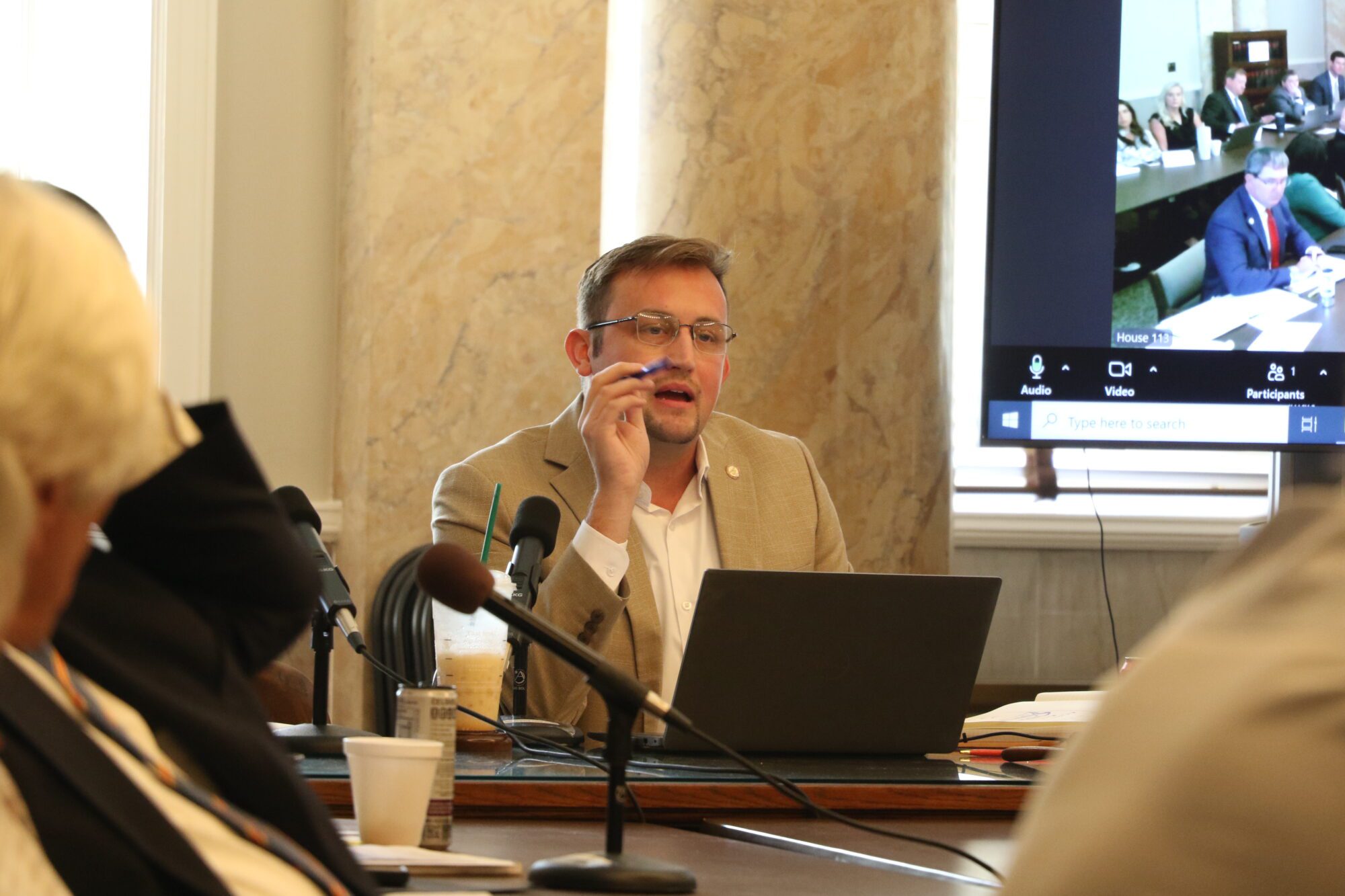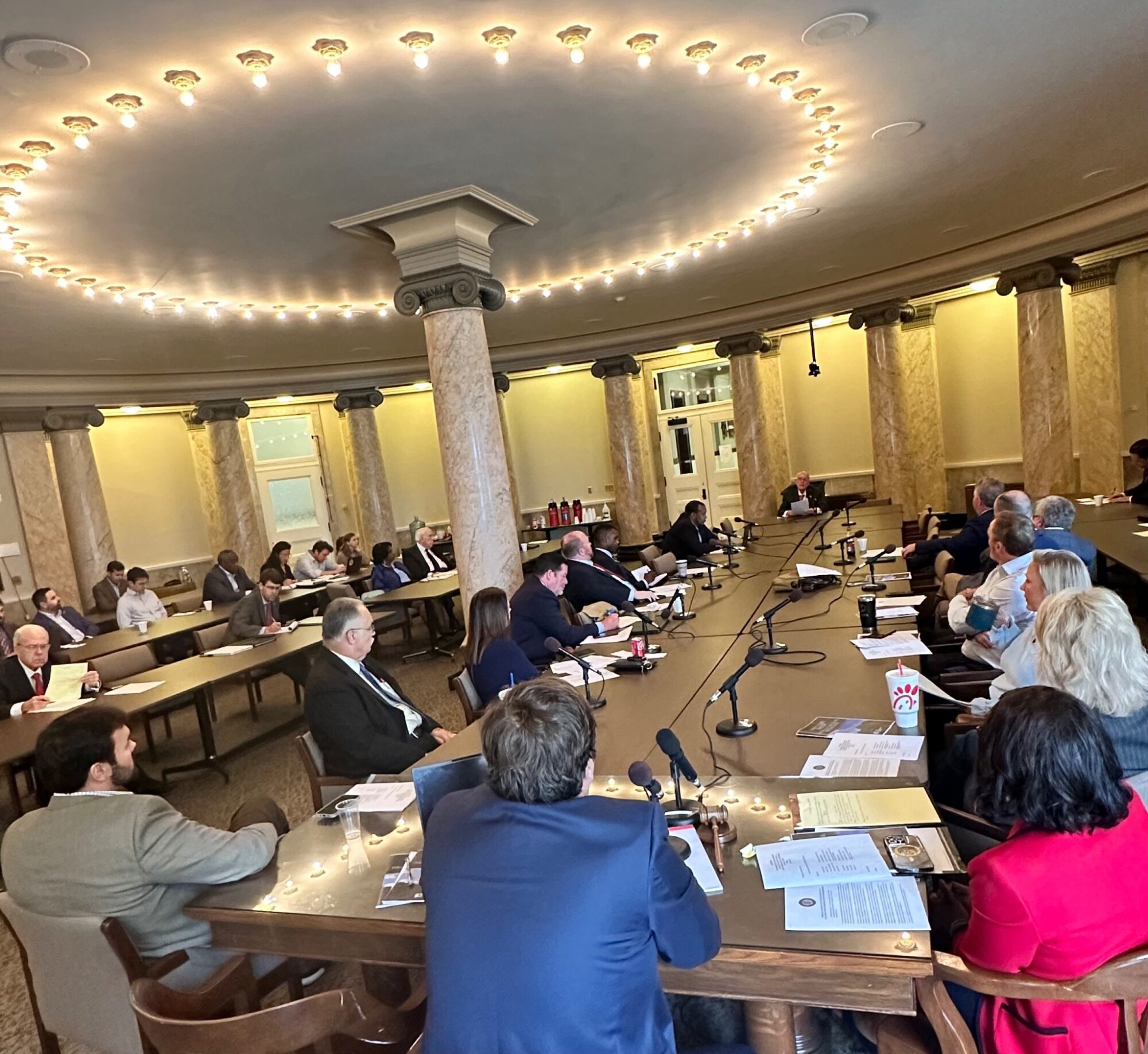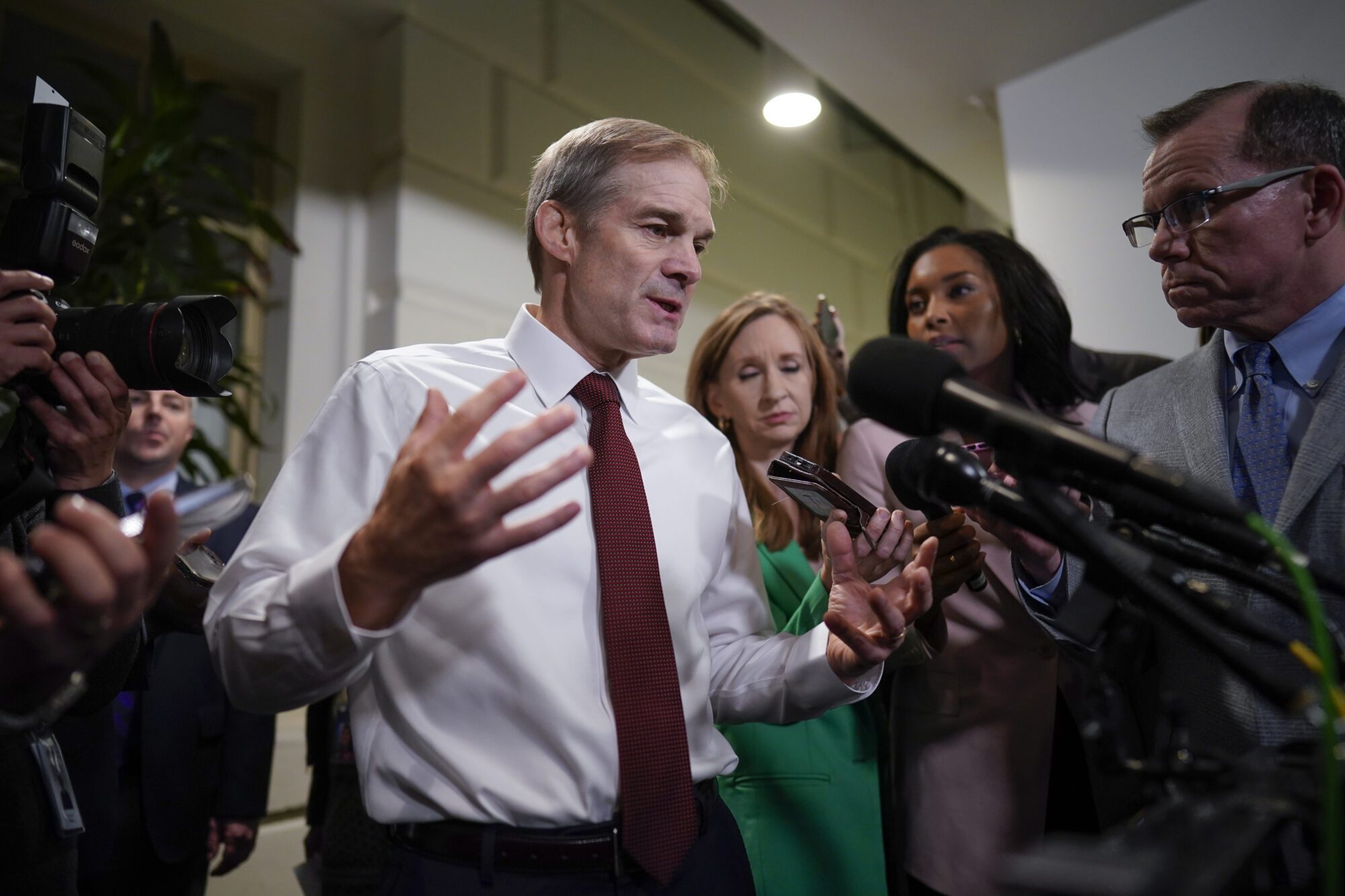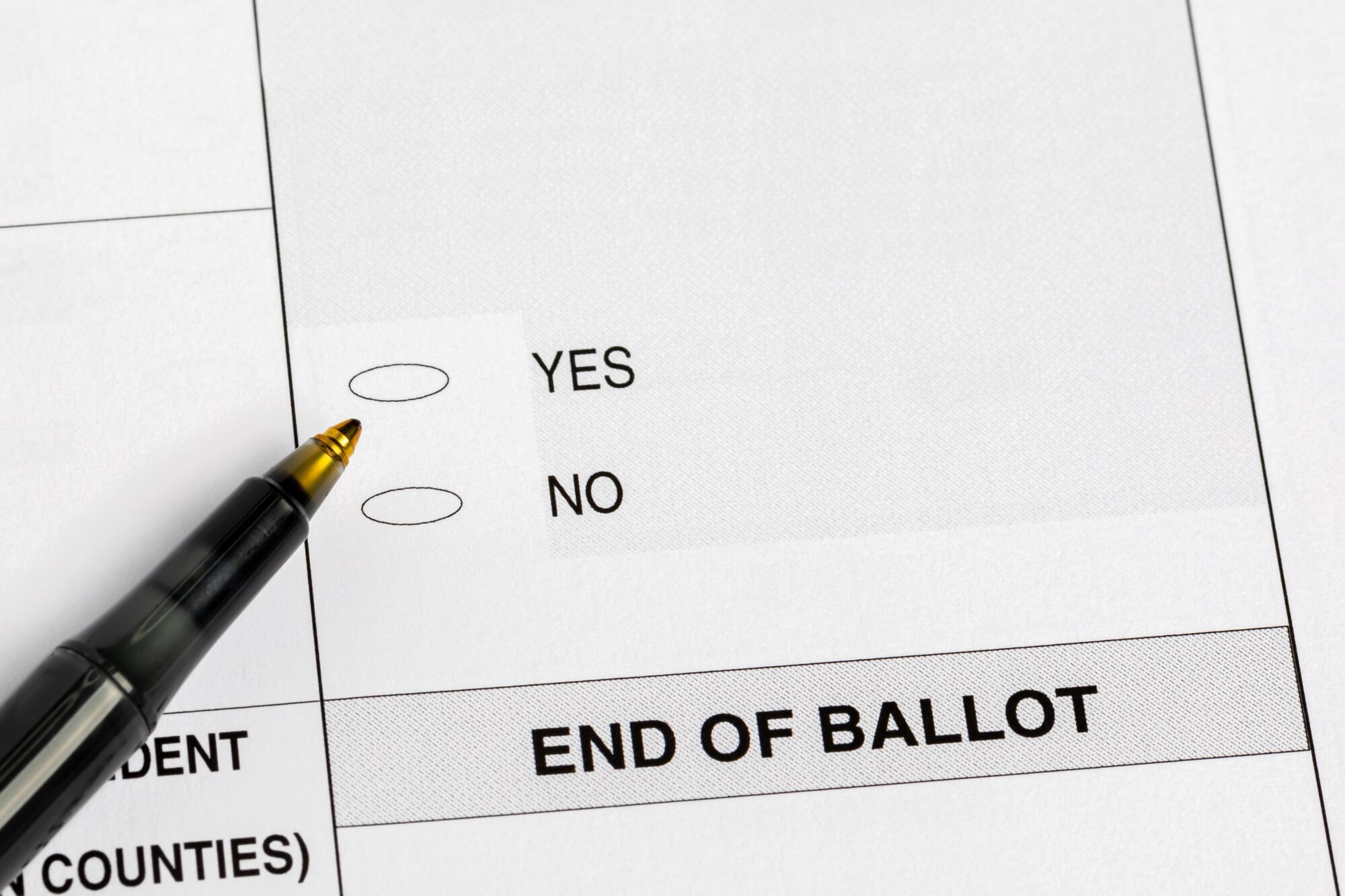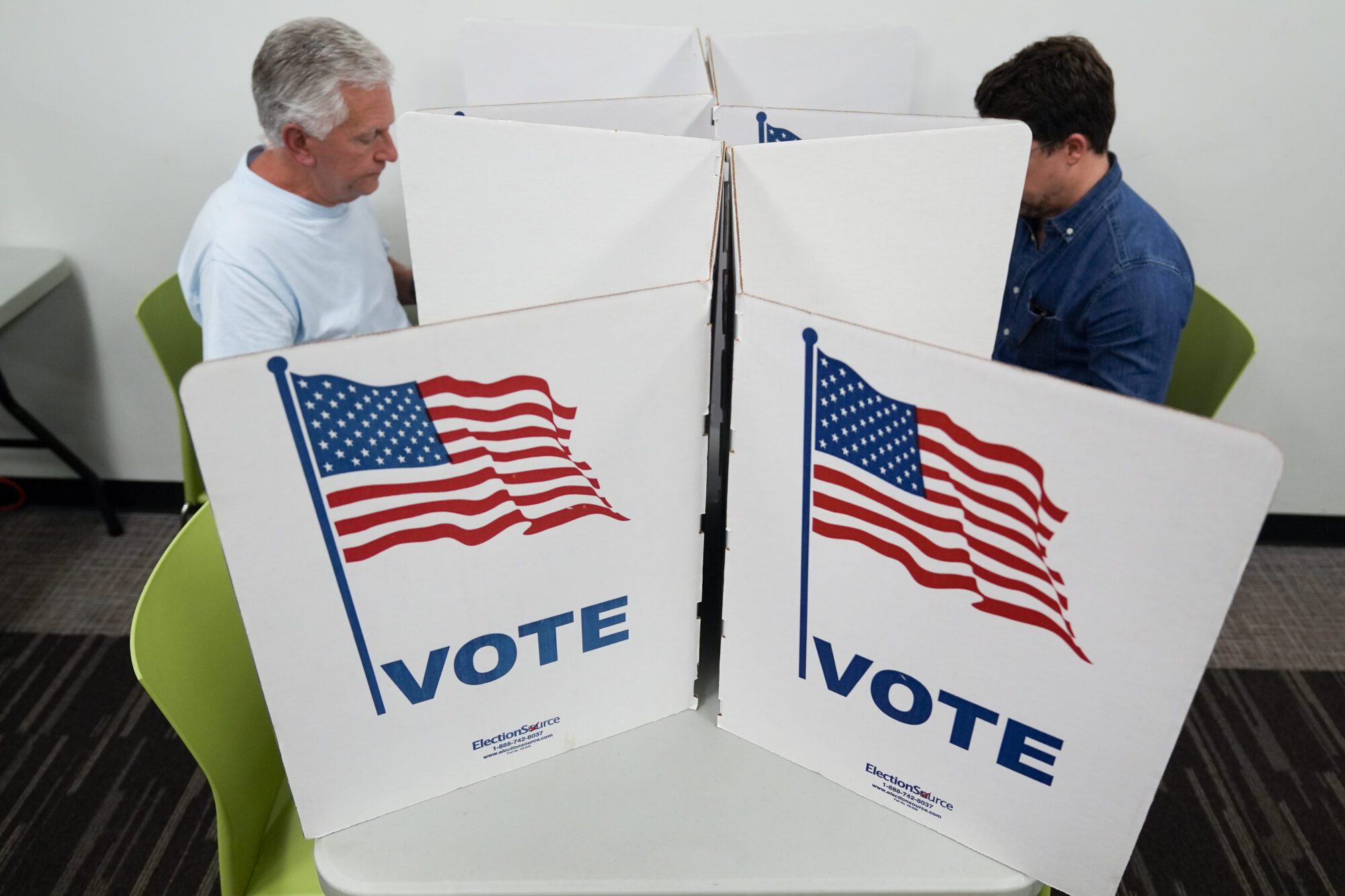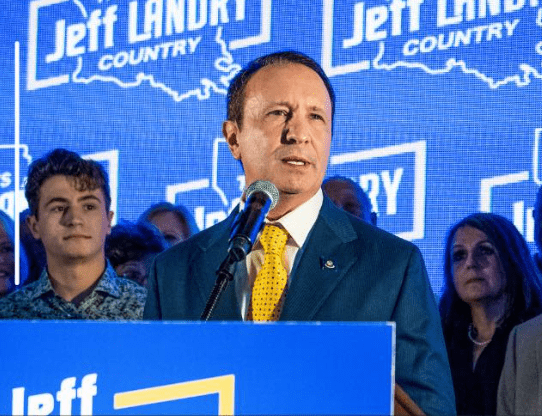
Jeff Landry (Photo from Landry's Facebook page)
Black voters in Louisiana reportedly helped the Republican take the gubernatorial win more than expected. Is that possible in Mississippi? Vicksburg Mayor George Flaggs says there is a wall for Democrats in the Magnolia State even with black voters’ support.
In a surprising turn of events on Saturday, the Louisiana Governor’s race was decided in their 15-person jungle primary with Republican Jeff Landry, the state’s current Attorney General, winning over 51% of the vote to avoid a runoff.
Polls had projected Landry would be in a runoff with Democratic candidate Shawn Wilson, the Secretary of the Louisiana Department of Transportation and Development under current Democratic Governor John Bel Edwards. However, voters decisively decided to flip the state red after eight years under Edwards.
Wilson came in with just under 26% of the vote on Saturday.
In total, the eight Republican candidates drew over 65% of the votes cast while the two Democrats won north of 28% and the five Independents won roughly 6%.
It is hoped by Republican Party leaders in Mississippi and Kentucky – the only two other states electing Governors this cycle – that Landry’s outright win is a good sign when voters in their states head to the polls.
Frank Bordeaux, chairman of the Mississippi Republican Party, told Magnolia Tribune on Monday that the win in Louisiana shows voters are eager to get to the polls to reject the Democratic agenda that is hurting the nation.
“The results from Louisiana show how motivated Republican voters are to get to the polls right now,” Bordeaux said. “[President] Joe Biden and the Democratic Party are tanking our economy, weakening our position on the global stage, and ignoring an unprecedented crisis at the Southern border.”
Bordeaux said Mississippians and Louisianans alike “want conservative leadership that will rein in reckless spending, protect our values, and enact sensible policies that will strengthen the economy and create good jobs.”
Mississippi’s Republican incumbent Governor Tate Reeves will meet Democratic nominee Brandon Presley in the state’s General Election on November 7th. A recent Magnolia Tribune/Mason-Dixon Poll has Reeves leading Presley by 8 points, 51-43.
To date, the campaigns for Reeves and Presley have spent nearly $7 million each this calendar year, with approximately half of Presley’s fundraising coming from one source – the Democratic Governors Association. The DGA has donated $3.7 million to the Presley campaign. A PAC supported by the Republican Governors Association, Mississippi Strong, donated $500,000 to Reeves.
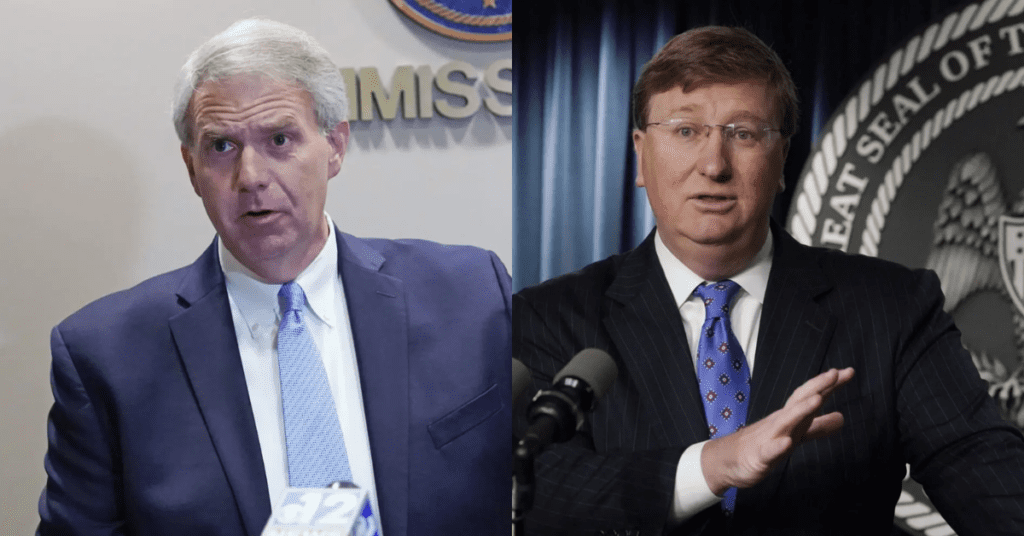
While spending in the Mississippi gubernatorial race may seem high to some, it is less than half of what Louisiana’s top race saw this cycle.
According to data compiled AdImpact, Louisiana gubernatorial candidates and related PACs spent a combined $29 million on advertisements across the Bayou state, with Democrat spending amounting to $1.1 million, Independent candidate spending of $2.2 million, and Republican spending $26.3 million. Much of GOP-related spending came from the Republican Governors Association. While the RGA remained neutral in their support, the group dropped over $4.7 million to challenge Wilson.
A quick review of Wilson’s campaign finance reports shows the Democratic Governors Association only contributed $5,000 directly to his effort. Other DGA spending in the race is unclear.
Yet, with all of that spending against the Louisiana Democrat, it resulted in Wilson, a black candidate, underperforming, reported NOLA.com, “especially among African-American voters, collecting only about half as many votes as the attorney general.” NOLA wrote that Landry picked up more votes than expected.
Vicksburg, Mississippi Mayor George Flaggs, a former Democratic lawmaker turned Independent, agreed. He told Magnolia Tribune on Monday that Landry is a very popular Attorney General across the Mississippi River.
“I think he attracts a lot more blacks than it appeared,” Flaggs, himself a black man, said. “I think blacks were more likely to vote Republican more so [for Landry] than in Mississippi.”
The same recent Magnolia Tribune/Mason-Dixon Poll showed 89% of black voters supported Democratic nominee Presley. Presley has made black outreach a key component in his campaign, speaking last week at a NAACP forum on the Gulf Coast and attending the Jackson State University football game over the weekend, specifically trying to appeal to voters at the HBCU by promising more state investment in the college.
But Mississippi’s Governor Reeves has also been courting black community leaders and reaching out to black voters this cycle, as has the state Republican Party in general with their minority outreach arm that resulted in more black GOP candidates running in more races this cycle than in generations. Their efforts resulted in Rodney Hall, the first black Republican to be elected to serve in the Mississippi House of Representatives since Reconstruction, winning in DeSoto County.
Mayor Flaggs says Hall’s win and his reception in the House will be the test for the Mississippi Republican going forward as it seeks to attract and recruit more black voters and candidates to the GOP.
“If they elevate him, treat him well, and use him in the right way, then I think you’re going to see some movement [by black voters],” Flaggs said. “If not, it’s just going to verify what has traditionally been the same thing – all talk and no walk.”
Flaggs added that while there is a difference in the culture and demographics between Louisiana and Mississippi, times have changed in Louisiana and voters responded to Landry.
As for Mississippi, Mayor Flaggs says there is a wall for Democrats even with black voters’ support.
“I think that wall is between 43% and 47%, and I think, at best, even when you have great turnout, that’s the wall for a Democratic candidate statewide [in Mississippi],” Flaggs said.
Presley, like Wilson in Louisiana, has tied himself to national Democratic figures, much to the pleasure of their Republican opponents. Wilson brought in union endorsements and Democratic congressional leaders to rally his base. Presley has used a similar playbook in Mississippi, pulling in the state’s lone Democratic Congressman Bennie Thompson for help while receiving donations and endorsements from union leaders, and working hard to reach D.C. donors given the limited Democratic Party fundraising machine in Mississippi.
Reeves, like Landry, has pushed back on the Democrats’ “woke” politics while promoting family values and a skilled workforce through educational gains. Both earned the support of key conservative groups in their states and nationally, while also being backed by Police and Sheriffs’ organizations as they challenge the crime epidemic and seek to “back the blue.”


